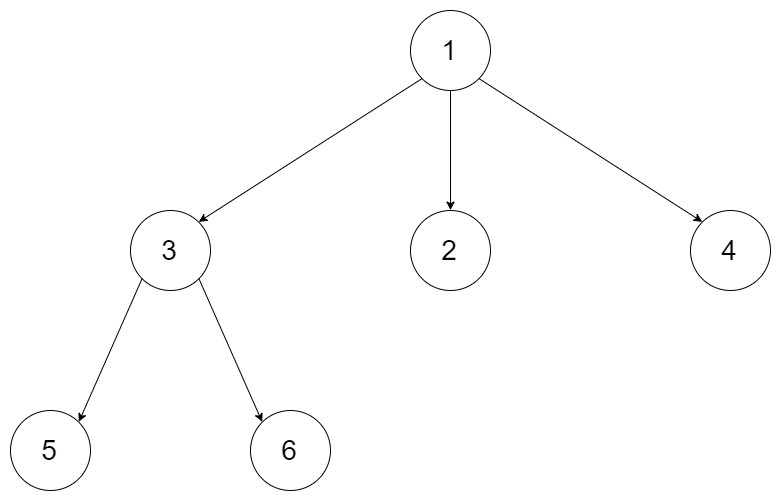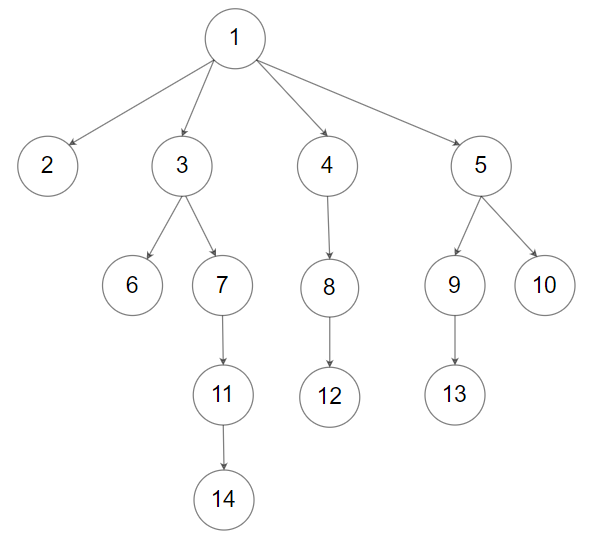[LeetCode] 429. N-ary Tree Level Order Traversal
Given an n-ary tree, return the level order traversal of its nodes' values.
Nary-Tree input serialization is represented in their level order traversal, each group of children is separated by the null value (See examples).
Example 1:

Input: root = [1,null,3,2,4,null,5,6]
Output: [[1],[3,2,4],[5,6]]
Example 2:

Input: root = [1,null,2,3,4,5,null,null,6,7,null,8,null,9,10,null,null,11,null,12,null,13,null,null,14]
Output: [[1],[2,3,4,5],[6,7,8,9,10],[11,12,13],[14]]
Constraints:
The height of the n-ary tree is less than or equal to 1000
The total number of nodes is between [0, 104]
N 叉树的层序遍历。
给定一个 N 叉树,返回其节点值的层序遍历。(即从左到右,逐层遍历)。
树的序列化输入是用层序遍历,每组子节点都由 null 值分隔(参见示例)。
思路
既然是层序遍历,那么方法一定是 BFS 跑不了了。如果对层序遍历不熟悉,建议先做一下 102 题和 107 题。
复杂度
时间O(n)
空间O(n^2) - output
代码
Java实现
/*
// Definition for a Node.
class Node {
public int val;
public List<Node> children;
public Node() {}
public Node(int _val) {
val = _val;
}
public Node(int _val, List<Node> _children) {
val = _val;
children = _children;
}
};
*/
class Solution {
public List<List<Integer>> levelOrder(Node root) {
List<List<Integer>> res = new LinkedList<>();
// corner case
if (root == null) {
return res;
}
// normal case
Queue<Node> queue = new LinkedList<>();
queue.offer(root);
while (!queue.isEmpty()) {
List<Integer> list = new ArrayList<>();
int size = queue.size();
for (int i = 0; i < size; i++) {
Node cur = queue.poll();
list.add(cur.val);
for (Node node : cur.children) {
queue.offer(node);
}
}
res.add(list);
}
return res;
}
}
相关题目
102. Binary Tree Level Order Traversal
107. Binary Tree Level Order Traversal II
429. N-ary Tree Level Order Traversal


 浙公网安备 33010602011771号
浙公网安备 33010602011771号